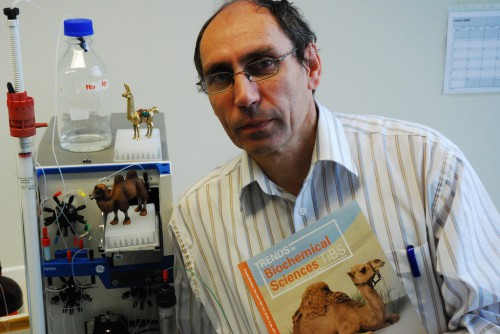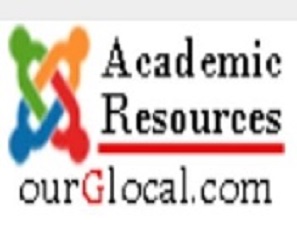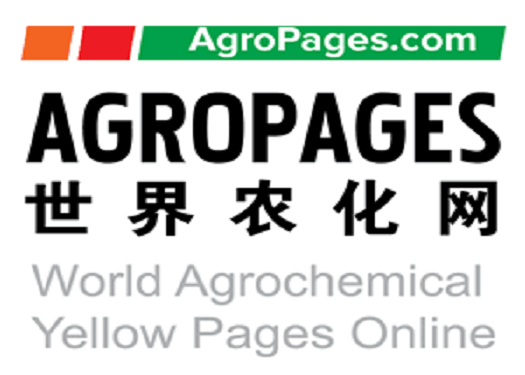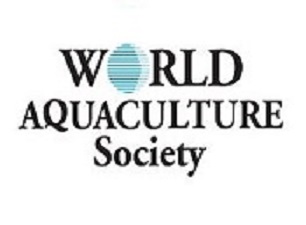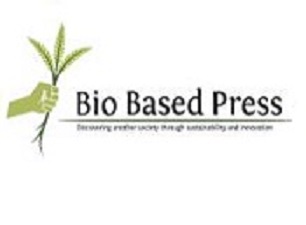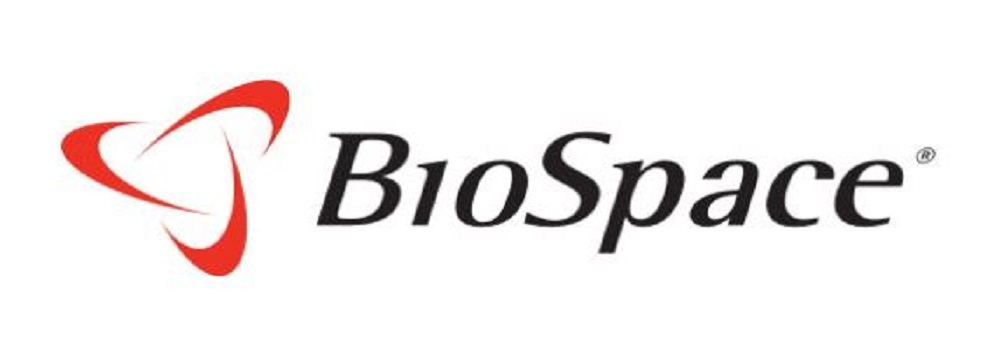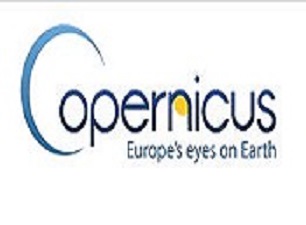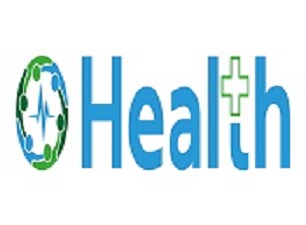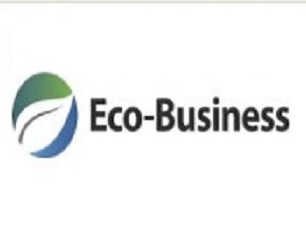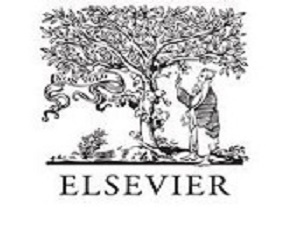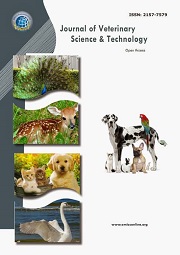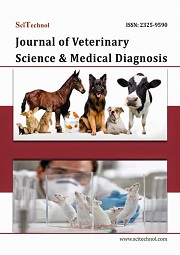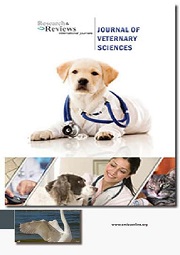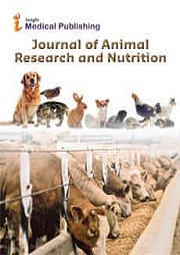Theme: New Horizons and Possibilities of Veterinary Science
Veterinary 2018
|
With the successful completion of Veterinary 2017, we feel proud to announce our upcoming “11th International Veterinary Congress”, which is going to be held during July 02-03, 2018 at Berlin, Germany with a theme “New Horizons and Possibilities of Veterinary Sector” |
|
Veterinary-2018 aims to accelerate scientific discoveries and major milestones in the current situation, challenges and innovations relating to Veterinary research & Animal Sciences and also its relevant areas. |
Track 1: Veterinary
Veterinary science is important to the study of livestock, herd health and monitoring the spread of disease. It requires the application of scientific knowledge in multiple areas and the use of technical skills in disease prevention that may affect both pets and wild animals. Animal Production facilitates improvements in agricultural productivity, with emphasis on animal production systems and administers the animal improvement. Animal production sector has been undergoing change at a remarkable pace over the past few decades.
Recommended Conferences: Veterinary Conferences | Veterinary Meetings | Animal Conferences | Livestock Conferences
Related Conferences
11th International Veterinary Congress, July 02-03, 2018, Berlin, Germany; 10th International Conference on Veterinary and Animal Sciences, June 02-03, Osaka, Japan; 8th International Conference on Animal health and Veterinary Medicine, October 20-21, Toronto, Canada; 9th Global Veterinary Summit, November 16-17, Las Vegas, Nevada, USA; World Veterinary Orthopedic Congress 04 Oct 2018 - 06 Oct 2018 Barcelona, Spain; American Veterinary Medical Association Annual Convention 19 July 2019 - 23 July 2019 Washington, D.C United States; 2018 Wild West Veterinary Conference 10-14 October 2018 Reno NV, USA; 9th International Conference on Antimicrobial Agents in Veterinary Medicine October 16-19, 2018 Rome, Italy; Pacific Northwest Veterinary Conference and Trade Show September 28-30, 2018 Tacoma, WA, USA: Dairy Veterinarians Meeting January 4-6, 2018, Columbus, Ohio, USA
Related Societies
Europe: Belgian Veterinary Computer Association, Hellenic Veterinary Medical Society, Slovak Small Animal Veterinary Association, Austrian Small Animal Veterinary Association, Czech Academy of Agricultural Sciences
USA: American Association of Veterinary Medical Colleges, The North American Veterinary Community, American Association of Veterinary Anatomists
Asia pacific: Feed Ingredients and Additives Association of Australia, Australian Pig Breeders Society, House Rabbit Society
Track 2: Veterinary Epidemiology
The worldwide Veterinary epidemiology market, calculated at $24.8 Billion in 2014, is set to reach $34.39 Billion by 2019, retaining a CAGR of 7.86% during the forecast period. The new type of diseases in animals and their subsequent transfer to humans through animal feed consumption and companionship are escalating the veterinary healthcare industry globally. The deliberate decisions in research and development of manufacturers are expected to positively impact global veterinary healthcare market.Veterinary diagnostics market has witnessed a paradigm shift in the past decade with the emergence of a number of lavish and sound products, which had a positive impact on the overall growth of the market. The market has seen recent advancements from the human diagnostics segment being adapted into the veterinary diagnostics segment. This trend still persists and with the human diagnostics getting cheaper, their application into the veterinary segment is expected to grow further.
Recommended Conferences: Veterinary Conferences | Veterinary Meetings | Animal Conferences | Livestock Conferences
Related Conferences
9th Global Veterinary Summit, November 16-17, Las Vegas, Nevada, USA ; 11th International Veterinary Congress, July 02-03, 2018, Berlin, Germany; 8th International Conference on Animal health and Veterinary Medicine, October 20-21, Toronto, Canada; World Veterinary Orthopedic Congress 04 Oct 2018 - 06 Oct 2018 Barcelona, Spain; 9th International Conference on Antimicrobial Agents in Veterinary Medicine October 16-19, 2018 Rome, Italy; American Veterinary Medical Association Annual Convention 19 Jul 2019 - 23 Jul 2019 Washington, D.C United States;2018 Wild West Veterinary Conference 10-14 October 2018 Reno NV, USA; Pacific Northwest Veterinary Conference and Trade Show September 28-30, 2018 Tacoma, WA, USA: Dairy Veterinarians Meeting January 4-6, 2018, Columbus, Ohio, USA
Related Societies
Europe: Slovak Small Animal Veterinary Association, Austrian Small Animal Veterinary Association, Czech Academy of Agricultural Sciences, Laboratory Animal Science Association
USA: The North American Veterinary Community, World Equine Veterinary Association, American Association of Veterinary Anatomists
Asia pacific: Feed Ingredients and Additives Association of Australia, Australian Pig Breeders Society, Australian Pig Breeders Society
Track 3: Animal welfare
Animal welfare is the prosperity of creatures. The models of good animal welfare change significantly between various contexts. These norms are under steady audit and are discussed, made and reexamined by animal welfare groups, lawmakers and scholastics worldwide. Animal welfare science utilizes different measures, for example, life span, sickness, immunosuppression, conduct, physiology, and reproduction, although there is debate about which of these markers give the best information. Concern to animal welfare is frequently in light of the conviction that non-human creatures are aware and that thought ought to be given to their prosperity or enduring, particularly when they are under the care of people.
Recommended Conferences: Veterinary Conferences | Veterinary Meetings | Animal Conferences | Livestock Conferences
Related Conferences
11th International Veterinary Congress, July 02-03, 2018, Berlin, Germany; 9th Global Veterinary meeting, November 16-17, Las Vegas, Nevada, USA ; 8th International Animal Health Summit, October 20-21, Toronto, Canada; World Veterinary Orthopedic Congress 04 Oct 2018 - 06 Oct 2018 Barcelona, Spain; American Veterinary Medical Association Annual Convention 19 Jul 2019 - 23 Jul 2019 Washington, D.C United States;2018 Wild West Veterinary Conference 10-14 October 2018 Reno NV, USA; 9th International Conference on Antimicrobial Agents in Veterinary Medicine October 16-19, 2018 Rome, Italy; Pacific Northwest Veterinary Conference and Trade Show September 28-30, 2018 Tacoma, WA, USA
Related Societies
Europe: Hellenic Veterinary Medical Society, Slovak Small Animal Veterinary Association, Austrian Small Animal Veterinary Association, Belgian Veterinary Computer Association, Czech Academy of Agricultural Sciences, Laboratory Animal Science Association, World Equine Veterinary Association, Irish Veterinary Acupuncture Society
USA: The North American Veterinary Community, American Association of Veterinary Medical Colleges, World Equine Veterinary Association, American Association of Veterinary Medical Colleges, American Association of Veterinary Anatomists, American Association of Small Ruminant Practitioners
Asia pacific: Meat and Livestock Australia, Australian Pig Breeders Society, Feed Ingredients and Additives Association of Australia, Australian Pig Breeders Society, House Rabbit Society
Track 4: Veterinary Medicine
There is a huge amount of variation in different animal species, and thus each species may need specific medicines for the same disease. Hence, the research and marketing of veterinary medicines is more complicated as compared to human medicines. Unlike human medicines, there is no regulation in the prices of veterinary medicines. The selection of veterinary medicines accounts for more than 270 trade names. The worldwide Veterinary Vaccines market ($4.23 Bn) accounted for approximately 20% of the total Vaccines market ($29.71 Bn) in 2010. It has been estimated to grow with a CAGR of 5.80% to reach the market size of $5.6 Bn by 2016.
Recommended Conferences: Veterinary Conferences | Veterinary Meetings | Animal Conferences | Livestock Conferences
Related Conferences
11th International Veterinary Congress, July 02-03, 2018, Berlin, Germany; 8th International Meeting on Veterinary Medicine, October 20-21, Toronto, Canada; 9th International Veterinary Conference, November 16-17, Las Vegas, Nevada, USA; World Veterinary Orthopedic Congress 04 Oct 2018 - 06 Oct 2018 Barcelona, Spain; American Veterinary Medical Association Annual Convention 19 Jul 2019 - 23 Jul 2019 Washington, D.C United States;2018 Wild West Veterinary Conference 10-14 October 2018 Reno NV, USA; 9th International Conference on Antimicrobial Agents in Veterinary Medicine October 16-19, 2018 Rome, Italy; Pacific Northwest Veterinary Conference and Trade Show September 28-30, 2018 Tacoma, WA, USA: Dairy Veterinarians Meeting January 4-6, 2018, Columbus, Ohio, USA
Related Societies
Europe: Irish Veterinary Acupuncture Society, Austrian Small Animal Veterinary Association, Belgian Veterinary Computer Association, Laboratory Animal Science Association, Hellenic Veterinary Medical Society, Slovak Small Animal Veterinary Association
USA: American Association of Veterinary Anatomists, American Association of Veterinary Medical Colleges, The North American Veterinary Community, World Equine Veterinary Association
Asia pacific: Australian Pig Breeders Society, Feed Ingredients and Additives Association of Australia, House Rabbit Society, Meat and Livestock Australia
Track 5: Veterinary Care & Management
Veterinary care is a representative piece of animal care and utilize program. The essential concentration of the veterinarian is to focus on the prosperity and clinical care of animals. Utilized as a part of research, testing, educating and production. This duty agrees of observing and the advancement of animal prosperity constantly amid all periods of the life of animals.
Recommended Conferences: Veterinary Conferences | Veterinary Meetings | Animal Conferences | Livestock Conferences
Related Conferences
11th Annual Veterinary Meeting, July 02-03, 2018, Berlin, Germany; 8th International Meeting on Veterinary Medicine, October 20-21, Toronto, Canada; 9th International Veterinary Conference, November 16-17, Las Vegas, Nevada, USA; World Veterinary Orthopedic Congress 04 Oct 2018 - 06 Oct 2018 Barcelona, Spain; American Veterinary Medical Association Annual Convention 19 Jul 2019 - 23 Jul 2019 Washington, D.C United States; 2018 Wild West Veterinary Conference, 10-14 October 2018 Reno NV, USA; 9th International Conference on Antimicrobial Agents in Veterinary Medicine October 16-19, 2018 Rome, Italy; Pacific Northwest Veterinary Conference and Trade Show, September 28-30, 2018 Tacoma, WA, USA: Dairy Veterinarians Meeting January 4-6, 2018, Columbus, Ohio, USA
Related Societies
Europe: Austrian Small Animal Veterinary Association, Czech Academy of Agricultural Sciences, Irish Veterinary Acupuncture Society, Laboratory Animal Science Association, Hellenic Veterinary Medical Society
USA: American Association of Veterinary Anatomists, American Association of Veterinary Medical Colleges, The North American Veterinary Community, World Equine Veterinary Association
Asia pacific: Meat and Livestock Australia, Australian Pig Breeders Society, Feed Ingredients and Additives Association of Australia, House Rabbit Society
Track 6: Poultry Production
Veterinary science is important to the study of livestock, herd health and monitoring the spread of disease. It requires the application of scientific knowledge in multiple areas and the use of technical skills in disease prevention that may affect both pets and wild animals. Animal Production facilitates improvements in agricultural productivity, with emphasis on animal production systems and administers the animal improvement. Animal production sector has been undergoing change at a remarkable pace over the past few decades.
Recommended Conferences: Veterinary Conferences | Veterinary Meetings | Animal Conferences | Livestock Conferences
Related Conferences
11th International Veterinary Congress, July 02-03, 2018, Berlin, Germany; 10th International conference on Veterinary and animal Sciences, June 02-03, Osaka, Japan; 8th International Conference on Animal health and Veterinary Medicine, October 20-21, Toronto, Canada; 9th Global Veterinary Summit, November 16-17, Las Vegas, Nevada, USA; World Veterinary Orthopedic Congress 04 Oct 2018 - 06 Oct 2018 Barcelona, Spain; American Veterinary Medical Association Annual Convention 19 Jul 2019 - 23 Jul 2019 Washington, D.C United States;2018 Wild West Veterinary Conference 10-14 October 2018 Reno NV, USA; 9th International Conference on Antimicrobial Agents in Veterinary Medicine October 16-19, 2018 Rome, Italy; Pacific Northwest Veterinary Conference and Trade Show September 28-30, 2018 Tacoma, WA, USA: Dairy Veterinarians Meeting January 4-6, 2018, Columbus, Ohio, USA
Related Societies
Europe: Belgian Veterinary Computer Association, Slovak Small Animal Veterinary Association, Laboratory Animal Science Association, Austrian Small Animal Veterinary Association, Irish Veterinary Acupuncture Society
USA: The North American Veterinary Community, World Equine Veterinary Association, American Association of Veterinary Anatomists, American Association of Veterinary Medical Colleges
Asia pacific: Feed Ingredients and Additives Association of Australia, Australian Pig Breeders Society, House Rabbit Society, Meat and Livestock Australia
Track 7: Wildlife Management
Wildlife management attempts to balance the needs of wildlife with the needs of people using the best available science. Wildlife management can include game keeping, wildlife conservation and pest control. Wildlife management draws on disciplines such as mathematics, chemistry, biology, to gain the best results. With the aim of balancing the needs of wildlife with the needs of people.Most wildlife biologists are concerned with the preservation and improvement of habitats.
Recommended Conferences: Veterinary Conferences | Veterinary Meetings | Animal Conferences | Livestock Conferences
Related Conferences
11th International Veterinary Congress, July 02-03, 2018, Berlin, Germany; 9th Annual Veterinary Meeting, November 16-17, Las Vegas, Nevada, USA ; 8th International Animal Health Summit, October 20-21, Toronto, Canada; World Veterinary Orthopedic Congress 04 Oct 2018 - 06 Oct 2018 Barcelona, Spain; American Veterinary Medical Association Annual Convention 19 Jul 2019 - 23 Jul 2019 Washington, D.C United States;2018 Wild West Veterinary Conference 10-14 October 2018 Reno NV, USA; 9th International Conference on Antimicrobial Agents in Veterinary Medicine October 16-19, 2018 Rome, Italy; Pacific Northwest Veterinary Conference and Trade Show September 28-30, 2018 Tacoma, WA, USA: Dairy Veterinarians Meeting January 4-6, 2018, Columbus, Ohio, USA
Related Societies
Europe: Belgian Veterinary Computer Association, Austrian Small Animal Veterinary Association, World Equine Veterinary Association, Hellenic Veterinary Medical Society, Slovak Small Animal Veterinary Association, Czech Academy of Agricultural Sciences, Laboratory Animal Science Association, Irish Veterinary Acupuncture Society
USA: American Association of Veterinary Medical Colleges, The North American Veterinary Community, American Association of Veterinary Medical Colleges, World Equine Veterinary Association, American Association of Veterinary Anatomists, American Association of Small Ruminant Practitioners
Asia pacific: Australian Pig Breeders Society, Meat and Livestock Australia, Feed Ingredients and Additives Association of Australia, Australian Pig Breeders Society, House Rabbit Society
Track 8: Animal Nutrition
Animal nourishment concentrates on the dietary needs of domesticated animals, principally those in horticulture and food production. There are seven noteworthy classes of supplements: sugars, fats, fiber, minerals, protein, vitamin, and water. Most foods contain a blend of a few or the greater part of the supplement classes, together with different substances, for example, toxins or different sorts. A few supplements can be stored internally (e.g., the fat solvent vitamins), while others are required pretty much persistently. Weakness can be caused by an absence of required supplements or, in extraordinary cases, a lot of a required supplement.
Recommended Conferences: Veterinary Conferences | Veterinary Meetings | Animal Conferences | Livestock Conferences
Related Conferences
11th International Veterinary Congress, July 02-03, 2018, Berlin, Germany; 8th International Animal Health Conference, October 20-21, Toronto, Canada; 9th Global Veterinary Events, November 16-17, Las Vegas, Nevada, USA; World Veterinary Orthopedic Congress 04 Oct 2018 - 06 Oct 2018 Barcelona, Spain; American Veterinary Medical Association Annual Convention 19 Jul 2019 - 23 Jul 2019 Washington, D.C United States;2018 Wild West Veterinary Conference 10-14 October 2018 Reno NV, USA; 9th International Conference on Antimicrobial Agents in Veterinary Medicine October 16-19, 2018 Rome, Italy; Pacific Northwest Veterinary Conference and Trade Show September 28-30, 2018 Tacoma, WA, USA: Dairy Veterinarians Meeting January 4-6, 2018, Columbus, Ohio, USA
Related Societies
Europe: Austrian Small Animal Veterinary Association, World Equine Veterinary Association, Slovak Small Animal Veterinary Association, Czech Academy of Agricultural Sciences, Irish Veterinary Acupuncture Society, Belgian Veterinary Computer Association, Laboratory Animal Science Association, Hellenic Veterinary Medical Society
USA: World Equine Veterinary Association, American Association of Veterinary Anatomists, American Association of Veterinary Medical Colleges, The North American Veterinary Community
Asia pacific: Australian Pig Breeders Society, Feed Ingredients and Additives Association of Australia, House Rabbit Society, Meat and Livestock Australia
Track 9: Dairy Farming
Dairy science investigates the innovation and science behind the generation of milk and milk products. It is a field that arrangements with the preparing of milk and its items. This field includes the utilization of "technology" to make the dairy products and processing more advanced, hi-tech and useful. The dairy technology is a part of food innovation that particularly manages the handling, stockpiling, packaging, distribution and transportation of the dairy items like milk, frozen yogurt, curd and so forth by suggesting the study of biochemistry, bacteriology, nourishment to the milk and milk products.
Recommended Conferences: Veterinary Conferences | Veterinary Meetings | Animal Conferences | Livestock Conferences
Related Conferences
11th International Veterinary Congress, July 02-03, 2018, Berlin, Germany; 9th Global Veterinary Summit, November 16-17, Las Vegas, Nevada, USA ; 8th International Animal Health Summit, October 20-21, Toronto, Canada; World Veterinary Orthopedic Congress 04 Oct 2018 - 06 Oct 2018 Barcelona, Spain; American Veterinary Medical Association Annual Convention 19 Jul 2019 - 23 Jul 2019 Washington, D.C United States; Dairy Veterinarians Meeting January 4-6, 2018, Columbus, Ohio, USA;2018 Wild West Veterinary Conference 10-14 October 2018 Reno NV, USA; 9th International Conference on Antimicrobial Agents in Veterinary Medicine October 16-19, 2018 Rome, Italy; Pacific Northwest Veterinary Conference and Trade Show September 28-30, 2018 Tacoma, WA, USA:
Related Societies
Europe: Hellenic Veterinary Medical Society, Slovak Small Animal Veterinary Association, Austrian Small Animal Veterinary Association, Belgian Veterinary Computer Association, Czech Academy of Agricultural Sciences, Laboratory Animal Science Association, World Equine Veterinary Association, Irish Veterinary Acupuncture Society
USA: The North American Veterinary Community, American Association of Veterinary Medical Colleges, World Equine Veterinary Association, American Association of Veterinary Medical Colleges, American Association of Veterinary Anatomists, American Association of Small Ruminant Practitioners
Asia pacific: Meat and Livestock Australia, Australian Pig Breeders Society, Feed Ingredients and Additives Association of Australia, Australian Pig Breeders Society, House Rabbit Society
Track 10: Livestock Production
Domesticated animals brought up in a farm setting to deliver wares, for example, nourishment, fiber, and labor. The term is frequently used to allude exclusively to those raised for nourishment, and once in a while just cultivated ruminants. Numerous times of development and early adaption of new technologies has improved their prosperity. The pace of progress and scope of chances are probably not going to reduce later on and we gather it is imperative for all ranchers to stay in contact with developments and see how they can be connected to their cultivating organizations to enhance their administration and physical and money related execution.
Recommended Conferences: Veterinary Conferences | Veterinary Meetings | Animal Conferences | Livestock Conferences
Related Conferences
11th International Veterinary Congress, July 02-03, 2018, Berlin, Germany; 10th International Conference on Veterinary and Animal Sciences, June 02-03, Osaka, Japan; 8th International Conference on Animal health and Veterinary Medicine, October 20-21, Toronto, Canada; 9th Global Veterinary Summit, November 16-17, Las Vegas, Nevada, USA; World Veterinary Orthopedic Congress 04 Oct 2018 - 06 Oct 2018 Barcelona, Spain; American Veterinary Medical Association Annual Convention 19 Jul 2019 - 23 Jul 2019 Washington, D.C United States;2018 Wild West Veterinary Conference 10-14 October 2018 Reno NV, USA; 9th International Conference on Antimicrobial Agents in Veterinary Medicine October 16-19, 2018 Rome, Italy; Pacific Northwest Veterinary Conference and Trade Show September 28-30, 2018 Tacoma, WA, USA: Dairy Veterinarians Meeting January 4-6, 2018, Columbus, Ohio, USA
Related Societies
Europe: Belgian Veterinary Computer Association, Hellenic Veterinary Medical Society, Slovak Small Animal Veterinary Association, World Equine Veterinary Association, Irish Veterinary Acupuncture Society, Austrian Small Animal Veterinary Association, Czech Academy of Agricultural Sciences, Laboratory Animal Science Association
USA: American Association of Veterinary Medical Colleges, The North American Veterinary Community, World Equine Veterinary Association, American Association of Veterinary Anatomists
Asia pacific: Feed Ingredients and Additives Association of Australia, Australian Pig Breeders Society, House Rabbit Society, Meat and Livestock Australia, Australian Pig Breeders Society
Track 11: Veterinary pathology
Veterinary pathologists are specialists of veterinary medication who spend significant time in the finding of ailments through the examination of creature tissue and body liquids. Like medicinal pathology, veterinary pathology is isolated into two branches, anatomical pathology and clinical pathology.
Recommended Conferences: Veterinary Conferences | Veterinary Meetings | Animal Conferences | Livestock Conferences
Related Conferences
8th International Meeting on Veterinary Medicine, October 20-21, Toronto, Canada; 11th International Veterinary Meeting, July 02-03, 2018, Berlin, Germany; 9th International Veterinary Conference, November 16-17, Las Vegas, Nevada, USA; World Veterinary Orthopedic Congress 04 Oct 2018 - 06 Oct 2018 Barcelona, Spain; American Veterinary Medical Association Annual Convention 19 Jul 2019 - 23 Jul 2019 Washington, D.C United States;2018 Wild West Veterinary Conference 10-14 October 2018 Reno NV, USA; 9th International Conference on Antimicrobial Agents in Veterinary Medicine October 16-19, 2018 Rome, Italy; Pacific Northwest Veterinary Conference and Trade Show September 28-30, 2018 Tacoma, WA, USA: Dairy Veterinarians Meeting January 4-6, 2018, Columbus, Ohio, USA
Related Societies
Europe: Hellenic Veterinary Medical Society, Slovak Small Animal Veterinary Association, Austrian Small Animal Veterinary Association, World Equine Veterinary Association, Czech Academy of Agricultural Sciences, Irish Veterinary Acupuncture Society, Belgian Veterinary Computer Association, Laboratory Animal Science Association
USA: World Equine Veterinary Association, The North American Veterinary Community, American Association of Veterinary Anatomists, American Association of Veterinary Medical Colleges
Asia pacific: Australian Pig Breeders Society, Meat and Livestock Australia, Feed Ingredients and Additives Association of Australia, House Rabbit Society
Veterinary 2017
7th International Veterinary Congress:
ConferenceSeries successfully hosted the 7th International Veterinary Congress during September 04-05, 2017, at Hotel Novotel Marne la Vallée Noisy le Grand
2 Allée Bienvenue, 93160 Noisy-le-Grand, France. The conference focused on the theme “Impeccable Growth of the Veterinary Sector”. The conference was successful in gathering eminent speakers from various reputed organizations and their paramount talks enlightened the gathering.
The conference focused on Health and Nutritional needs of Wild and Domestic Animals and the meeting engrossed in knowledgeable discussions on novel subjects like: Veterinary Science, Animal Nutrition and Diseases, Recent Developments, Veterinary Medicine, Animal Breeding and Genetics, Dairy Cattle Technology, Animal Biotechnology, Livestock Management and Companion Animal Behavior, Poultry Production, Animal Models and Testing
Veterinary 2017 comprised of International Workshops as follows:
· “Clinical nutrition – Canine nutrition – A fistful of dog food” by Dr. Krisztina Kungl University of Veterinary Medicine, Budapest, Hungary
· “Advances in camel science” by Dr.Tarun Kumar Gahlot, RAJUVAS, India
Veterinary 2017 further comprised of young researchers Forum, judged by Dr. Krisztina Kungl University of Veterinary Medicine, Budapest, Hungary and Yael Shilo-Benjamini, Koret School of Veterinary Medicine, Israel.
Theme: New Horizons and Possibilities of Veterinary Sector
Veterinary Conference welcomes participants, visitors, delegates and exhibitors from all over the world to the extravagant city of Berlin, Germany. The conference is focusing on a wide array of topics including veterinary research, veterinary medicine, animal nutrition, poultry production, animal reproduction, animal welfare and clinical veterinary. Conference Series organizes 3000+ events inclusive of 600+ Conferences, 1200+ Workshops and 1200+ Symposiums on various topics of Science & Technology across the globe with support from 1000 more scientific societies. Conference Series also publishes 700+ Open Access Journals which contains over 50000 eminent personalities and reputed scientists as editorial board members.
Throughout the ages humans have depended on animals for service, food, and companionship. In modern times, animals have even played a crucial role in research settings where diseases are studied and drug therapies are developed. Veterinary medicine and animal care focus on the provision of health care, surgery, and preventive services for a variety of animal species. Veterinarians and veterinary technicians address health emergencies as well as provide routine medical care.
This veterinary conference focuses on the exponential growth taking place in the veterinary sector. Veterinary medicine has responsibilities in biomedical research; ecosystem management; public health; food and agricultural systems; and care of companion animals, wildlife, exotic animals, and food animals. The veterinary profession contributes to improvement of human and public health by improving agriculture and food systems, advancing biomedical and comparative medical research, preventing and addressing zoonotic diseases, enhancing environmental and ecosystem health, and helping manage 21st century public health challenges.
We take this opportunity to welcome you all in Paris, France. Mark Veterinary 2018 in the veterinary conferences 2018 calendar and join us to have an exciting experience and worthy scientific moments.
Market Analysis
11th International Veterinary Congress
Theme: “New Horizons and Possibilities of Veterinary Sector”
About the Conference
This veterinary conference focuses on the exponential growth taking place in the veterinary sector. Veterinary medicine has responsibilities in biomedical research; ecosystem management; public health; food and agricultural systems; and care of companion animals, wildlife, exotic animals, and food animals. The veterinary profession contributes to improvement of human and public health by improving agriculture and food systems, advancing biomedical and comparative medical research, preventing and addressing zoonotic diseases, enhancing environmental and ecosystem health, and helping manage 21st century public health challenges.
We take this opportunity to welcome you all in Berlin, Germany. Mark Veterinary 2018 in the veterinary conferences 2018 calendar and join us to have an exciting experience and worthy scientific moments.
Significance and Scope
The top destination countries of VET students doing a registered work placement are all European. Spain, France, Belgium, Germany, the United Kingdom and Austria make up the top 6. This is explicable in terms of effort, cost and opportunity, considering the visa-free movement of people within the EU and the excellent opportunities offered in Europe within the Reaserch programme. Of the almost 7,000 international work placements, 1,350 were done in countries outside the EU. Curaçao, Turkey, the United States, South Africa and Canada are the 5 most popular non-EU destinations. There are some strong links between destination countries, sectors and qualifications. Spain, France and Italy, for example, are very popular with students in hospitality programmes. Belgium, Austria and Germany are favourite destinations of students in care, well-being and/or sports. The UK scores relatively high with students in business services and security, and in trade. The increasing importance of VET in higher education and the extensive and important role played by continuing vocational education and training adds to this complexity and makes the task of judging the character and boundaries of VET in Europe increasingly more difficult. The project will, over a 3-year period, analyse how vocationally oriented education and training has developed and changed in the last two decades (1995-2015) and on this basis point to the main challenges and opportunities facing the sector today. This will be addressed from two angles: First, VET is defined by its position in the overall education and training system. The expansion of general and academic education has in some countries created an imbalance potentially undermining the ability of the VET system to serve the labour market and society. Second, VET is directly influenced by external factors, notably demographic developments and labour market trends driven by technological and organisational change. Combining these two angles of analysis, the research will clarify how VET is defined and understood by stakeholders at national level, how this understanding has evolved over time and, notably, how it has been translated into political strategies, institutional solutions and didactic approaches.
The survey indicates quite clearly that the vast majority (60%) of veterinarians work in clinical practice and predominantly small animal clinical practice. The second most popular sector is public service (19%), education and research (6%) and industry and private research (4%). Another 10 per cent of the profession work in other areas as a veterinarian. It is interesting to note that salaries adjusted by the Purchasing Power Parity for veterinarians is significantly higher (almost 25%) in all countries compared to the average PPP adjusted salaries for all employees. The highest earning Veterinary trained professionals are, in order, those working in industry, those in nonveterinarian related work and thirdly those owning Veterinary clinics but overall there are not substantial differences in the rates of remuneration across all sectors. • Across almost all countries, the male/female ratio is approximately 50:50. However the proportion of female veterinarians is much higher amongst veterinarians under 40, indicating that there will be a change in the gender distribution within the profession in the future. There is no indication that this will change as higher numbers of females continue to enter undergraduate training. • Veterinary unemployment and under-employment is a significant problem in some countries. These countries tend to have larger numbers of Veterinary schools producing relatively higher numbers of Veterinary students, thus contributing to, or causing the employment deficit. However, this is very country specific and relates to the relative size of the total population i.e. not all countries with high numbers of Veterinary schools have high Veterinary un/under employment. • Across all countries, participating veterinarians reply that they feel there are too many veterinarians graduating. They also expect more veterinarians will be needed in more ‘new fields’ of employment such as monitoring animal welfare. • Across all countries, veterinarians indicated that ‘Day-one competencies’ and Continuous Professional Development (CPD) will become more important, as the profession in the future will be expected to become more specialised. • A high percentage of professionals are, or have, considered emigrating to work in another country. This reality is clearly more prevalent in those countries with higher levels of unemployment. The biggest single concern about working in another European country relates to practical, relocation or personal issues. Whilst this phenomenon is recorded it requires further analysis and detailed questioning in order to identify root cause, proposed alternative roles, length of stay away from home country, and key destinations. • An interesting point to note is the size of Veterinary practice appears to in a process of change. Currently most veterinarian practices are small with fewer than 5 staff. However, there would appear to be a trend towards increasing corporatisation and the creation of larger practice groups. These larger organisations will have an impact on the style and type of Veterinary employment impacting upon earnings, work patterns, employment opportunities, etc.
Why Berlin, Germany??
Germany is the seventh largest country in Europe. It is the most populated country in Europe. According to the IMF and the World Bank, Germany is the fourth largest economy in the world and the world’s fifth largest economy in purchasing power parity.
The German population is estimated at 82,162,000 people as of 1 January 2016. The population had been steadily falling since 2006 (2006: 82,437,995/2008: 82,217,837/2010: 81,802,257/2012: 80,327,900)1 , but this trend was reversed in 2013, due to the above-average migration surpluses (net migration in 2015 : +1.1 mn).
Veterinary services provide healthcare for animals - especially pets, farm animals, and animals kept in zoos and wildlife parks. This market comprises licensed veterinary practitioners who practice veterinary medicine, dentistry or surgery for animals.
Scope
Markets covered: Animal Hospitals and Veterinary Clinics, Veterinary Laboratory Testing Services.Markets compared: Hospitals and Outpatient Care Centers, Home Health and Residential Nursing Care Services, Medical and Diagnostic Laboratory Services, Physicians and Other Healthcare Practitioners, Dental Services, Residential Substance Abuse and Mental Health Facilities, Veterinary Services.
Companies mentioned: VCA (all based in the US), Benfield Pet Hospital, Greencross Vets (Australia), CVS Group (UK), The Bergh Memorial Animal Hospital, The Animal Medical Center and others.
Conference Highlights
· Veterinary
· Veterinary Medicine
· Veterinary Epidemiology
· Veterinary Research
· Economics and industry
· Animal Nutrition
· Animal Reproduction and Genetics
· Animal Biotechnology
· Livestock Production & Management
· Veterinary Forensics
· Animal welfare
· Poultry Production
· Dairy Technology
· Animal Models and Testing
· Veterinary Care and Management
· Entrepreneurs Investment Meet
Why to Attend
Veterinary-2018 could be an exceptional event that brings along a novel and International mixture of giant and medium veterinary researchers, leading universities and veterinary research and analysis establishments providing the conference an ideal platform to share expertise, foster collaborations across trade and world, and assess rising technologies across the world.
Market Analysis
The pet industry picked up the pace in 2016, improving over a growth rate in 2015. Looking ahead, the future of the industry will be even brighter. Pet owners able to enjoy the warmer than usual weather the country has been experiencing, pet owners will likely not feel inhibited from taking their pets outside, and perhaps making a stop for food and supplies along the way. In addition, private equity has shown considerable interest in pet retail, with a host of investments in the major players. The veterinary channel is also seeing changes. Packaged Facts expects the industry to have sales increasing noticeably through 2020.
Berlin Market Report:
Trade
Traditional mixed cattle-crop producers often produce cattle for low beef value markets. Cattle marketing chains are characterised by a large number of agents which ensures a competitive price structure at the lower end of the market. Traditional producers often sell their cattle to collectors/ middlemen at farm gate through spot transactions and immediate payment. Some also take their cattle directly to the local cattle market. At the market, sellers are usually individual farmers, professional traders or opportunistic speculators. Buyers are mainly traders serving slaughter for butchers or slaughter houses (50%). Some buyers purchase for breeding stock or fattening. Bargaining between a seller and a buyer starts when the seller provides information about the price and age of animals. Negotiations for whole truck load occur with well-known buyers/traders. Sellers pay a market fee and obtain the animal health certificate from local livestock officer to pass to the buyer with the cattle. If the buyer wants to move the animals across provinces, they need to get a movement permit and pays a certain fee. Mid and high value cattle producers differentiate their products to be traded. Specialised fattening producers often sell their products through spot marketing or group marketing, while contracting is often done between modern slaughter houses and large commercial feedlots. These producers tend to be located close to destination markets, and often sell directly to butchers or slaughter houses.
Global Market Research:
The global veterinary vaccines market is poised to reach USD 7.68 Billion by 2021 from USD 5.81 Billion in 2016, at a CAGR of 5.8% from 2016 to 2021.
Factors such as the increase in livestock population and repeated breakouts of livestock diseases; increasing incidence of zoonotic diseases; initiatives by various government agencies, animal associations, and leading players; and the introduction of new vaccine types are driving the veterinary vaccine market. However, the rising costs of storage & maintenance of vaccines and the increasing prices of meat (promoting the adoption of vegetarian diets) are hindering the growth of the veterinary vaccines market.
The veterinary vaccines market is segmented on the basis of product, disease, technology, and region. The veterinary vaccine products market is categorized into companion animal vaccines, livestock vaccines, poultry vaccines, porcine vaccines, equine vaccines, aquaculture vaccines, and other animal vaccines. In this market, companion animal vaccines form the fastest-growing product segment, due to increasing awareness about vaccination, increasing number of zoonotic diseases in the human population, and the increasing number of pets and pet owners.
On the basis of technology, the veterinary vaccines market is classified into inactivated vaccines, live attenuated vaccines, toxoid vaccines, conjugate vaccines, DNA vaccines, recombinant vaccines, and subunit vaccines. Live attenuated vaccines hold the largest share of the veterinary vaccines market, by technology. The live attenuated vaccines segment is mainly driven by factors such as the increasing prevalence of diseases among porcine and poultry animals as well as the ease of administration and long-term immunity offered by these vaccines.
On the basis of geography, the veterinary vaccines market is segmented into North America, Europe, Asia, and the Rest of the World (RoW). In 2016, Europe accounted for the largest share of the veterinary vaccines market, followed by North America. However, Asia is expected to register the highest growth during the forecast period. In Asia, market growth will primarily be concentrated in China, India, Thailand, and South Korea. Major players operating in the veterinary vaccines market are Zoetis Inc. (Pfizer) (U.S.), Merck Animal Health (U.S.), Merial Inc. (Sanofi) (France), Boehringer Ingelheim (Germany), and Elanco Animal Health (U.S.).
Veterinary vaccines are the most profitable part of the growing animal medicine market. Profitability in the veterinary vaccine market is fueled by the drive for food safety and the high cost of treating contagious diseases in livestock animals, increasing investment in vaccines by government agencies, and rising demand for companion pets in countries around the world.
Given the preventive focus of veterinary health care for both commercial animals and human companion animals, the veterinary vaccine market is expected to see considerable growth in revenue over the next five years,” from a reported value of $12.1 billion in 2015 to an anticipated value of $20.6 billion by 2021.
According to a report published by Zion Market Research of Sarasota, FL, factors influencing the market growth include “rising maintenance cost of vaccine storage,” chronic diseases in food animals, and economic downturns that could be offset by increasing the demands for human consumption of animal products, such as milk, eggs, and meat.
World population is expected to grow by 2.3 billion over the next decades, reaching over nine billion in 2050. Most of this growth will be happening in developing countriesi but the impact of that population growth will undoubtedly be felt far and wide. If production losses (eg from disease, pests, storage) and food waste (eg during processing, transportation and consumption) are not appropriately dealt with, global food production will have to increase by 70% between 2005-07 and 2050 to face the growing population trend. According to the OECD,“the challenge [now] is to feed a growing, more urban and, on average, richer population whilst adopting more efficient and sustainable production methods and adapting to climate change.” Feeding the world’s population will bring – in fact it is already bringing – incredible challenges in terms of sustainably balancing demand and supply, and adequately managing the contribution of the food system to the mitigation of climate change, for example. In the next 50 years, the production of food will most likely involve a strong competition for land, water and energy. Precautionary strategic measures will therefore need to be taken to ensure that the world’s capacity to produce food is not jeopardised. In its Foresight Report on the Future of Food and Farming, the Government Office for Science warns that “This is a unique time in history – humanity is facing a future that is very different from the past. Decisions made now and over the next few decades will disproportionately influence the future.” Quality of food, not only the quantity of it, will also suffer a dramatic shift. As incomes rise in developing countries, diets are expected to slowly diversify away from staple foods towards meat and processed foods that will favour livestock and dairy products. An analysis of the food consumption in countries like China and Brazil shows that the country’s development is generally accompanied by a sharp increase in meat consumption. Overall, the global cattle population has been predicted to increase from 1.5 billion in 2000 to about 2.6 billion by 2050, and the global goat and sheep population from 1.7 billion to about 2.7 billion over the same period. This places an unprecedented pressure on maintaining the health and sustainability of the herd. Similarly, it is estimated that global poultry production will have to quadruple to satisfy demand
The veterinary vaccine market is broken down into two main segments: vaccines for livestock and those for companion animals. The livestock market accounts for a much greater share of the veterinary vaccine market at over 62 percent, with more than 30 percent of that for porcine (pig) virus vaccines. Pet vaccines account for 38 percent of the global market, broken down into equine (horse), canine (dog) and feline (cat) vaccines. Within the pet segment, vaccines for dogs represent the most lucrative market, growing at a rate of about six percent per year.
Global Veterinary Universities:
University of Florida College of Veterinary Medicine, USA
University of Georgia College of Veterinary Medicine, USA
University of Illinois College of Veterinary Medicine, USA
Iowa State University College of Veterinary Medicine, USA
Kansas State University College of Veterinary Medicine, USA
Louisiana State University School of Veterinary Medicine, USA
Michigan State University College of Veterinary Medicine, USA
University of Minnesota College of Veterinary Medicine, USA
Mississippi State University College of Veterinary Medicine, USA
University of Missouri College of Veterinary Medicine, USA
North Carolina State University College of Veterinary Medicine, USA
Ohio State University College of Veterinary Medicine, USA
Oklahoma State University College of Veterinary Medicine, USA
Oregon State University College of Veterinary Medicine, USA
University of Pennsylvania School of Veterinary Medicine, USA
Purdue University School of Veterinary Medicine, USA
Universidad Autonoma de Aguascalientes Centro Agropecuario, Mexico
Universidad Autónoma del Estado de Mexico Facultad de Medicina Veterinaria y Zootecnia, Mexico
Universidad Autónoma de Nayarit Escuela Superior de Medicina Veterinaria y Zootecnia, Mexico
Universidad Autónoma de Nuevo León Facultad de Medicina Veterinaria & Zootecnia
Universidad Autónoma de Querétaro Escuela de Medicina Veterinaria & Zootecnia
Veterinärmedizinische Universität Wien, Austria
Royal Veterinary and Agricultural University, Denmark
University of Zagreb Faculty of Veterinary Medicine, Croatia
University of Helsinki Faculty of Veterinary Medicine, Finland
Università di Bologna Facoltà di Medicina Veterinaria, Italy
Università di Messina Facoltà di Medicina Veterinaria, Italy
Università di Milano Facoltà di Medicina Veterinaria, Italy
Università di Napoli Federico II Facoltà di Medicina Veterinaria, Italy
Università di Parma Facoltà di Medicina Veterinaria, Italy
Università di Perugia Facoltà di Medicina Veterinaria, Italy
Veterinary Universities in Germany
Free University of Berlin Faculty of Veterinary Medicine, Germany
Tierärztliche Hochschule Hannover, Germany
Universitaet Giessen Fachbereich Veterinärmedizin, Germany
Universität Leipzig Veterinärmedizinische Fakultät, Germany
Veterinary Societies:
The North American Veterinary Community, USA
Belgian Veterinary Computer Association, Belgium
Czech Academy of Agricultural Sciences, Czech Republic
Hellenic Veterinary Medical Society, Greece
Slovak Small Animal Veterinary Association, Slovakia
House Rabbit Society, Australia
Laboratory Animal Science Association, UK
Austrian Small Animal Veterinary Association, Austria
World Equine Veterinary Association, Brazil
Irish Veterinary Acupuncture Society, Ireland
Belgian Veterinary Computer Association, Belgium
Austrian Small Animal Veterinary Association, Austria
Nordic Society for Veterinary Epidemiology, Iceland
World Equine Veterinary Association, Brazil
Swedish Society of Veterinary Medicine, Sweden;
Association of Practicing Veterinary Surgeons, Russia
Association of British Veterinary Acupuncture, UK
Veterinary Funding Agencies:
The French Agency for Veterinary Medicinal Products
American College of Veterinary Internal Medicine Foundation
American Veterinary Medical Association
Animal Behavior Society Grants and Awards
Found Animals Foundation
Horses and Humans Foundation
International Foundation for Ethical Research (IFER)
Michigan Association of Veterinary Technicians
Morris Animal Foundation
National Pork Board
U.S. Poultry and Egg Association
Waterbird Society Research Grants
BIRDNET : Grants, Awards, and Prizes in Ornithology
American Jersey Cattle Association/AJCC Research Foundation/US Jersey
Conclusion:
The worldwide veterinary vaccine market encompasses North America, Europe, Asia Pacific, Latin America, the Middle East and Africa. Currently, North America and Europe dominate the veterinary vaccine trade, commanding more than 68 percent of the market. The U.S. is expected to continue to account for nearly 38 percent of that market, primarily because of increasing pet ownership and the great demand for dairy products. In the production of meat for consumption, for example, efficiency gains could be achieved if the genetic markers associated with traits of economic value were known. For example, “the nutritive value of meat and milk could be enhanced by providing the livestock industry with information that would allow farmers to produce animals with a fatty acid composition closer to that recommended by government.”On the other hand, research and innovation can also help to address major inefficiencies in the reproductive performance of ruminants, pigs and poultry which result in breeding percentages well below the potential of the herd/flock. Either by improving the fertility (cattle and sheep), or developing scientifically-informed diets for the animals that avoid overfeeding them crude protein or performing genetic selection (pigs, poultry), a great deal could potentially be achieved in enhancing the response to the current challenges.
References:
http://staff.lib.msu.edu/harris23/grants/3asvet.htm
http://www.marketsandmarkets.com/PressReleases/veterinary-diagnostics.asp
http://www.marketresearchreports.com/veterinary
http://www.marketresearch.com/Life-Sciences-c1594/Healthcare-c85/Veterinary-Health-c1627/
http://www.reportlinker.com/ci02247/Veterinary-Healthcare.html
http://valuationresources.com/Reports/SIC0740VeterinaryServices.htm
https://www.ibisworld.com/industry/default.aspx?indid=1447
http://valuationresources.com/Reports/SIC0740VeterinaryServices.htm
http://www.fve.org/news/download/FVE%20Survey%20_contents_tforce_ex_summary.pdf
Conference Highlights
- Veterinary
- Veterinary Medicine
- Camel Science
- Veterinary Epidemiology
- Animal Nutrition
- Animal Welfare
- Animal Reproduction
- Animal Biotechnology
- Livestock Production & Management
- Poultry Production
- Dairy Technology
- Veterinary Care & Management
- Veterinary Nursing
- Equine Research and Medicine
- Veterinary Pharmacology
- Veterinary Pathology
- Veterinary public health and Zoonoses
- Veterinary Virology
- Veterinary Epidemiology
- Veterinary Toxicology
- Veterinary Genetics
- Veterinary Ophthalmology
- Challenges to Food Hygiene and Safety
- Veterinary Bacteriology and Mycology
- Veterinary Acupuncture
- Veterinary Internal Medicine
- Veterinary Dermatopathology
- Meat Science, Food Toxicology, Impact of New Processes and Technologies on Food Toxicology
- Veterinary Microbiology and Microbial Disease
- Veterinary Dentistry
- Avian and Exotic Science
- Veterinary Pharmacovigilance
- Veterinary Business and Enterprise
- Environmental Protection, Public Health and Co-Management with Food Safety
- Veterinary Surgery
- Veterinary Anesthesia
- Veterinary and Animal Ethics
- Veterinary Biologics
- Veterinary Biologics
- Livestock Production
- Animal Agriculture
- Aquaculture
- Biology of Domestic Animals
- Anatomy and Physiology of Domestic Animals
- Anatomy and Physiology of Domestic Animals
- Animal Genetics and Breeding
- Animal Reproduction
- Applications of Animal Biotechnology
- Cloned and transgenic animals and their regulation
- Animal Growth and Development
- Animal Products and Food Safety
- Animal Health, Welfare and the Environment
- Animal Products and Food Safety
- Animal Health, Welfare and the Environment
- Applied Animal Welfare science
- Animal Behavior
- Animal Testing
- Animal Diseases
- Large Animal diseases
- Small and Companion animal Diseases
- Problems of Animal Health in Tropics
- Vector-borne animal diseases
- Soil-borne animal diseases
- Contact animal diseases
- Animal Health Management
- Wildlife Management
- Animal Welfare in international trade
- Wildlife Management
- Animal Welfare in international trade
- Dairy Farming
- Regulatory aspects of Animal Science
- Animal Health Industry
- Hospital Design and Management
- Veterinary Gastroenterology
- Veterinary Endocrinology
- Veterinary Cardiology
- Veterinary Respiratory Medicine
- Veterinary Critical care and emergency medicine
- Veterinary Radiology and Diagnostic imaging
- Veterinary Nephrology
- Animal Health Management
- Wildlife Management
- Animal Welfare in international trade
- Dairy Farming
- Regulatory aspects of Animal Science
- Regulatory aspects of Animal Science
- Animal Health Industry
- Hospital Design and Management
- Veterinary Gastroenterology
- Veterinary Endocrinology
- Veterinary Cardiology
- Veterinary Respiratory Medicine
- Veterinary Critical care and emergency medicine
- Veterinary Radiology and Diagnostic imaging
- Veterinary Nephrology
- Veterinary Orthopedics
- Veterinary Pain management
- Zoological Medicine
- One Health
- Responsible Use of Animal Medicines
- Antimicrobial resistance (AMR)
- Nanotechnology in Veterinary
- GMO
To share your views and research, please click here to register for the Conference.
To Collaborate Scientific Professionals around the World
| Conference Date | July 02-03, 2018 | ||
| Sponsors & Exhibitors |
|
||
| Speaker Opportunity Closed | Day 1 | Day 2 | |
| Poster Opportunity Closed | Click Here to View | ||
Useful Links
Special Issues
All accepted abstracts will be published in respective Our International Journals.
- Journal of Veterinary Science & Technology
- Journal of Veterinary Science & Medical Diagnosis
- Research & Reviews: Journal of Veterinary Sciences
Abstracts will be provided with Digital Object Identifier by
























